Understanding night sweats
Night sweats can throw a spanner in your sleep routine and leave you feeling a bit miffed.
Knowing the signs and what sets them off is key to keeping them in check.
Definition and symptoms of night sweats
Night sweats are those sweaty spells that hit while you’re asleep.
They can be a mild nuisance or a full-on drenching, leaving your bedding in a right state - and sometimes they're even severe enough to wake you up!
Typical signs include:
- Drenched sleepwear: PJs soaked through with sweat
- Frequent waking: Being jolted awake more often than you’d like
- Heating sensations: A sudden warm flush, often around your chest or back
Typically, night sweats aren't a condition on their own but can hint at something else going on health-wise [1].
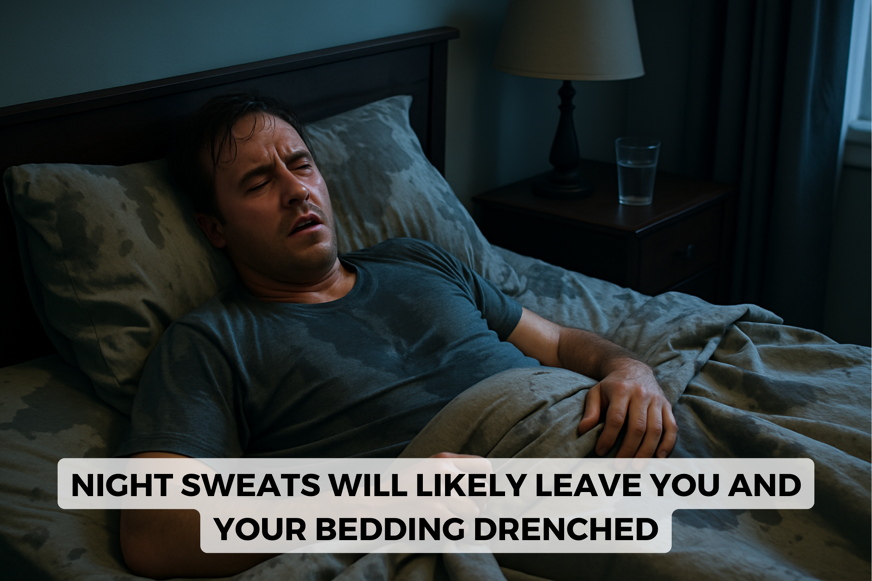
It's important to note, though, that simply sweating a bit at night and actual night sweats are two different things.
Sweating itself is good for you, keeping your body cool and well-balanced.
It's only when excessive sweating is at play that we're talking about actual night sweats.
Common triggers of night sweats
Loads of things can spark night sweats.
Hormonal changes [2], like during menopause, are a big one, but conditions like hyperhidrosis [3], where you sweat more than usual, can play a part too.
Other culprits include:
- Infections: Some bugs can bring on the sweats
- Medications: Pills like antidepressants might turn up the heat
- Lifestyle choices: Spicy curry, a coffee habit, or a nightcap can ramp up sweating
Spotting these triggers is your ticket to sorting them out, so let's take a closer look at both medical and lifestyle factors.
Medical causes of night sweating
Sometimes, night sweats point to a medical issue, and digging into the specifics can help you tackle the root cause.
Infections and illnesses
Certain infections [4] can leave you sweaty at night.
- Tuberculosis [5], for instance, often pairs night sweats with fever and chills, while viral nasties like a bad flu can do the same.
- Autoimmune conditions - think rheumatoid arthritis [6] or lupus [7]- might stir up night sweats too, thanks to your immune system going into overdrive.
- Some cancers, especially lymphomas [8], can bring on heavy sweating, often with weight loss or fever tagging along.
There's generally no need for alarm, but it's always worth having a chat with your GP if your night sweats are severe or accompanied by other symptoms.
Hormonal imbalances
Hormones going haywire are a common sweat starter.
- For women, menopause [9] can mean hot flushes and night-time dampness as oestrogen dips, but pregnancy shakes things up too, with hormonal swings sparking extra sweat.
- In men, low testosterone might be the culprit.
If your thyroid’s overactive (hyperthyroidism [10]), it can also rev up your metabolism and leave you sweating more than usual.
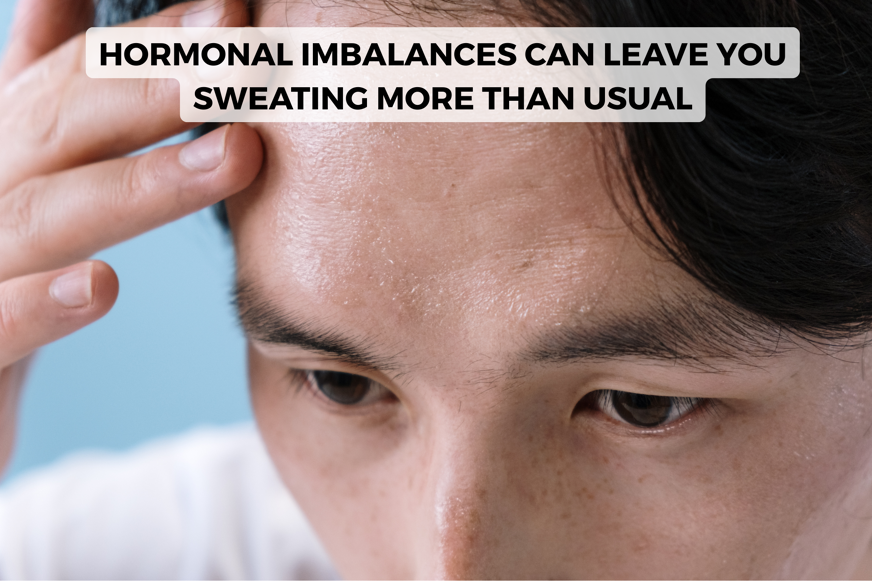
A doctor can check if your hormones need balancing, so it's best to contact your GP or healthcare professional if you're worried about this.
Medications and therapies
Some medications can sneakily cause night sweats.
Look out for the following:
- Antidepressants are known to trigger night sweats.
- Hormonal treatments, like those for prostate cancer or HR, can also make you sweat more.
- Diabetes drugs that tweak blood sugar might trigger a sweaty night, too.
It’s worth having a chat with your doctor about any pills you’re taking regularly.
Lifestyle factors affecting night sweating
Your day-to-day habits can nudge night sweats along.
From your bedroom setup to what’s on your plate, here’s what to keep an eye on.
Diet and hydration
What you eat and drink can really affect how much you sweat at night.
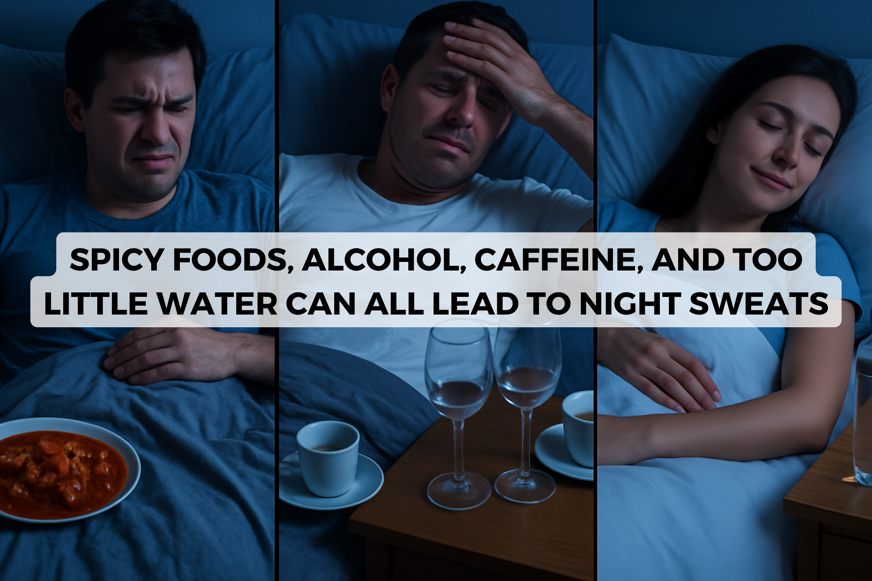
Watch out for:
- Spicy foods: That fiery takeaway might heat you up later.
- Caffeine and alcohol: Both can mess with sleep and spark sweating.
- Hydration: Keep sipping water - dehydration can actually make you sweat more to cool off.
A few smart swaps could dial down the dampness.
Stress and anxiety
Feeling frazzled can ramp up night sweats, and it’s worth paying attention to the following:
- Stress hormones: Too much cortisol can throw sleep off-kilter and get you sweating.
- Anxiety levels: Worries can keep your body on high alert, messing with temp control.
Chilling out with meditation and mindfulness or a bit of yoga might help you (and your sheets) stay drier.
In general, we'd recommend getting stress and anxiety levels under control - it may be difficult, but it can really do wonders for your sleep hygiene.
Sleep environment
Your bedroom setup can make a big difference to how much you sweat.
Here are the ideals:
- Room temperature: Aim for a cool 18°C [11] or so - check out how to cool down a room for some tips and also read our guide on the best temperature for sleep to help you out.
- Bedding materials: Cotton or linen bedding [12] beats synthetic options for better airflow, and silk bedding is the crème de la crème for cool nights.
- Sleepwear choice: Loose, breathable gear helps keep sweat at bay.
Tweaking these can turn your bed into a cooler, comfier spot. 😊
These sleep products may help keep you cool:
Management and treatment
Sorting night sweats can transform your sleep.
Here’s a mix of home fixes, lifestyle tweaks, and medical help to try.
Home remedies
Simple changes can cut down the sweat.
- Stay hydrated with plenty of water to keep your temperature steady.
- Switch to breathable silk or cotton bedding for a cooler night.
- Sip a calming chamomile tea [13] before bed to unwind.
- Diffuse lavender oil in your room for a soothing vibe.
- Wear loose, airy PJs to let your skin breathe.
These are all pretty simple to follow, so we’d suggest starting with these for an instant fix.
Lifestyle modifications
A few habit shifts can also work wonders.
- Skip spicy grub and cut back on caffeine and alcohol.
- Get moving with regular exercise to ease stress and regulate your temperature.
- Set a steady bedtime routine for better sleep vibes.
- Try meditation or yoga to keep stress - and sweat - in check.
- Keep your room cool with a fan or air con for good measure.
By making these changes, you should be on your way to sweat-free sleep in no time.
Medical interventions
If that’s not enough, your GP or healthcare pofessional can step in.
They might pinpoint a cause, like hormones or an infection, and suggest something along the lines of the following:
- Prescription meds: Drugs to dial down sweating
- Hormone therapy: For menopause or other imbalances
- Botox: To zap sweat in stubborn spots
In rare cases, procedures like microwave therapy are required to nix sweat glands [14].
Figuring out why you're sweating at night requires a bit of time and effort.
Here's how the pros might tackle a sweat problem:
Medical history and physical examination
Your GP will kick off with a good chat about your night sweats, establishing how frequent it is, how badly you're sweating, and if you're experiencing any other symptoms like fever or weight loss.
They’ll ask about your medications, recent bugs, and even family health history, plus your stress levels and alcohol habits.
A quick once-over might check your skin, lymph nodes, or tum for clues about infections or other issues.
Laboratory tests
If the chat raises flags, tests might be next.
You’ll likely have the following:
- Blood tests: To spot infections, hormone quirks, or blood issues
- Thyroid checks: To see if an overactive thyroid’s to blame
- Culture tests: If they suspect a specific bug’s at play
These give your doctor solid info to work with.
Specialist referrals
If it’s tricky, you might get sent to a specialist - like an endocrinologist for hormones or a rheumatologist for autoimmune concerns.
They’ll dig deeper with tailored tests to nail down what’s what, making sure you get the right care.
Conclusion: Why do I sweat at night?
Night sweats don’t have to rule your nights - understanding the causes is half the battle won.
With a few tweaks and maybe a GP chat, you can reclaim your cool, comfy sleep.
Sweet dreams await!
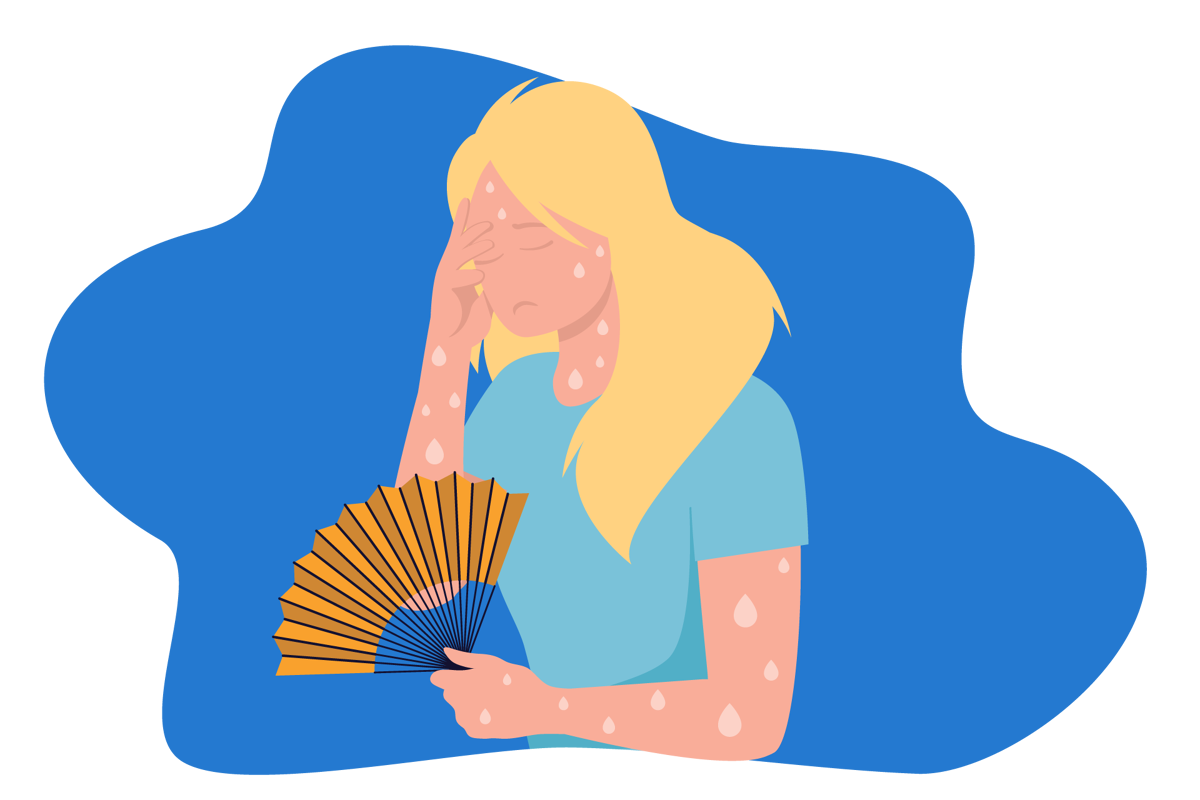





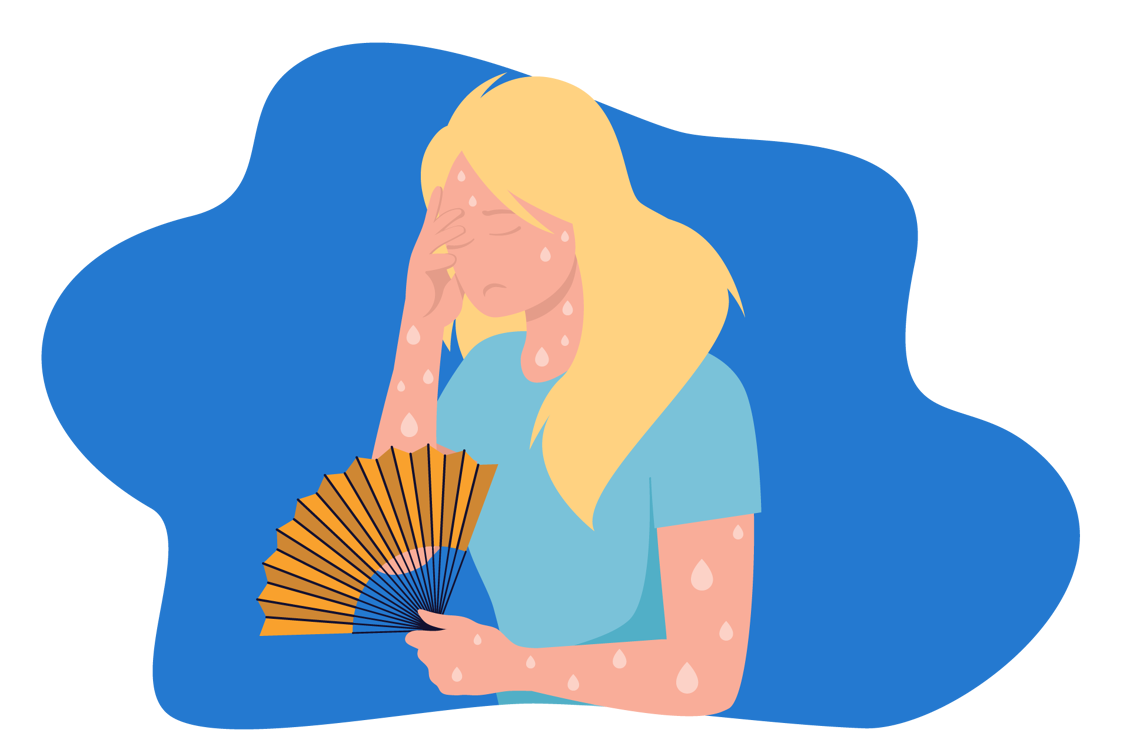


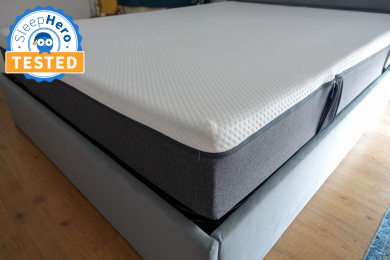

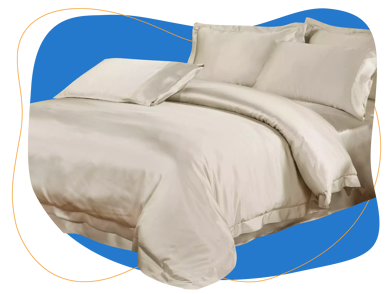




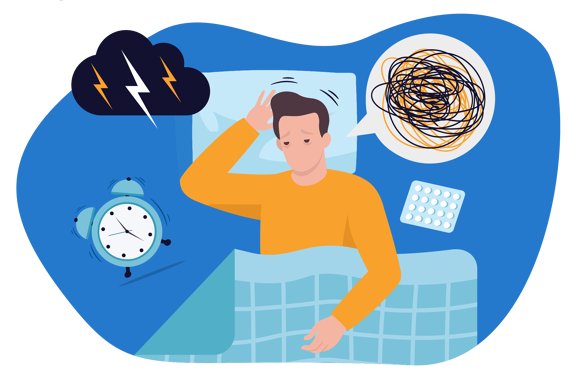
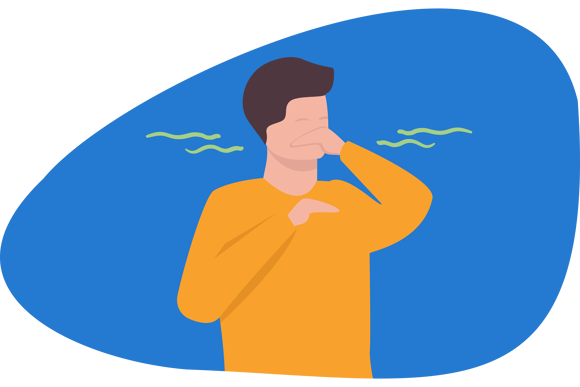


Alternatively, message us directly via the Contact Us page.